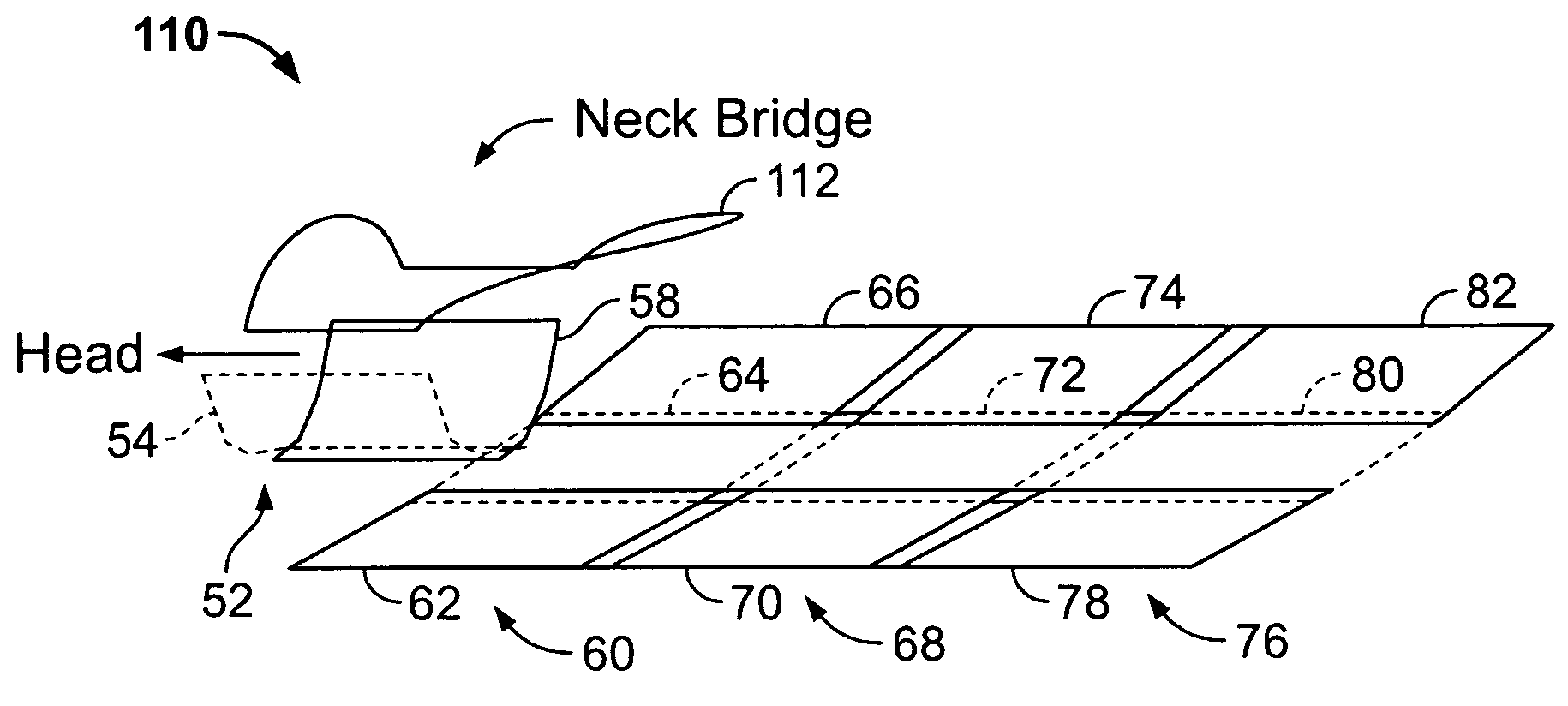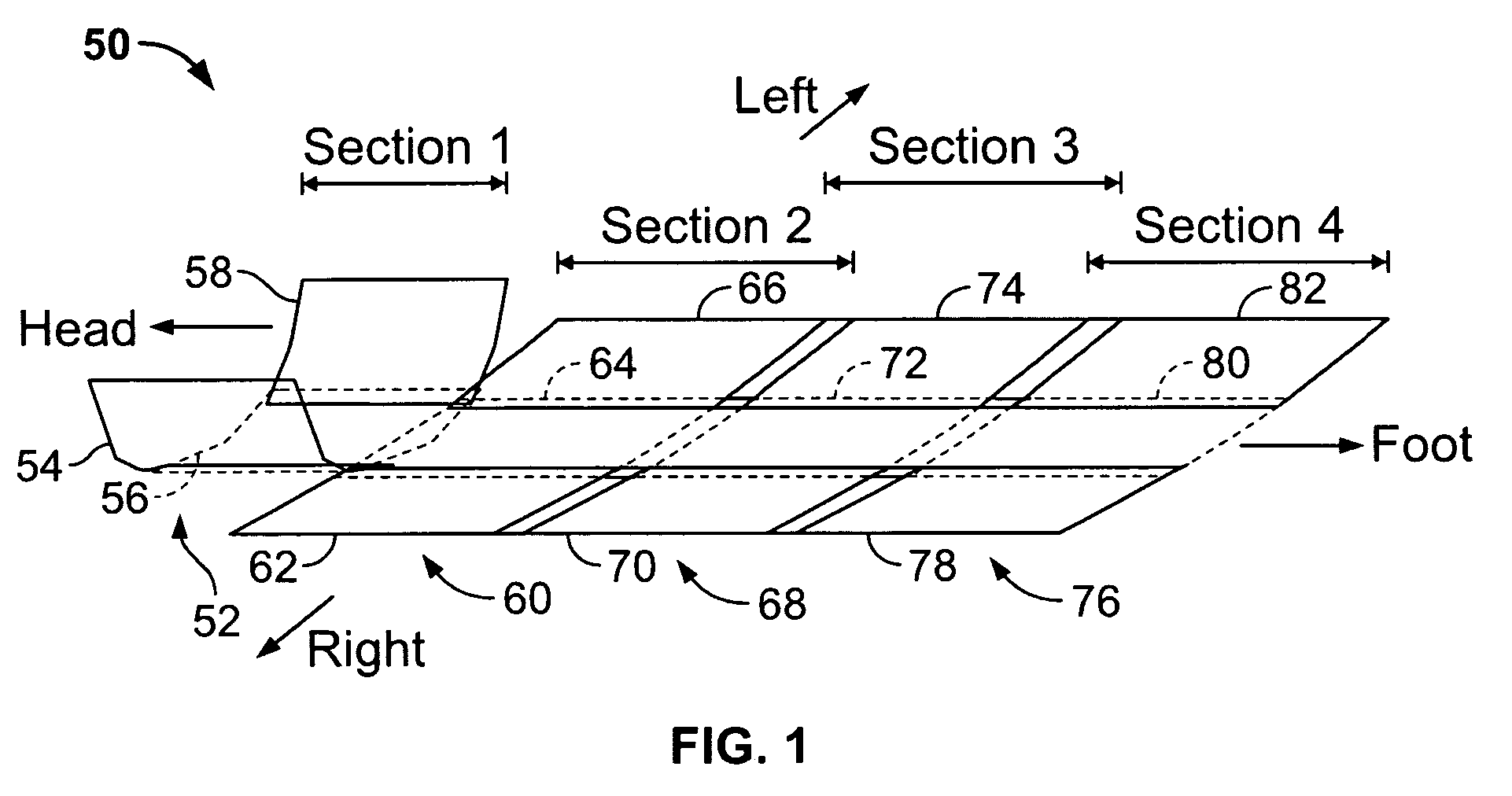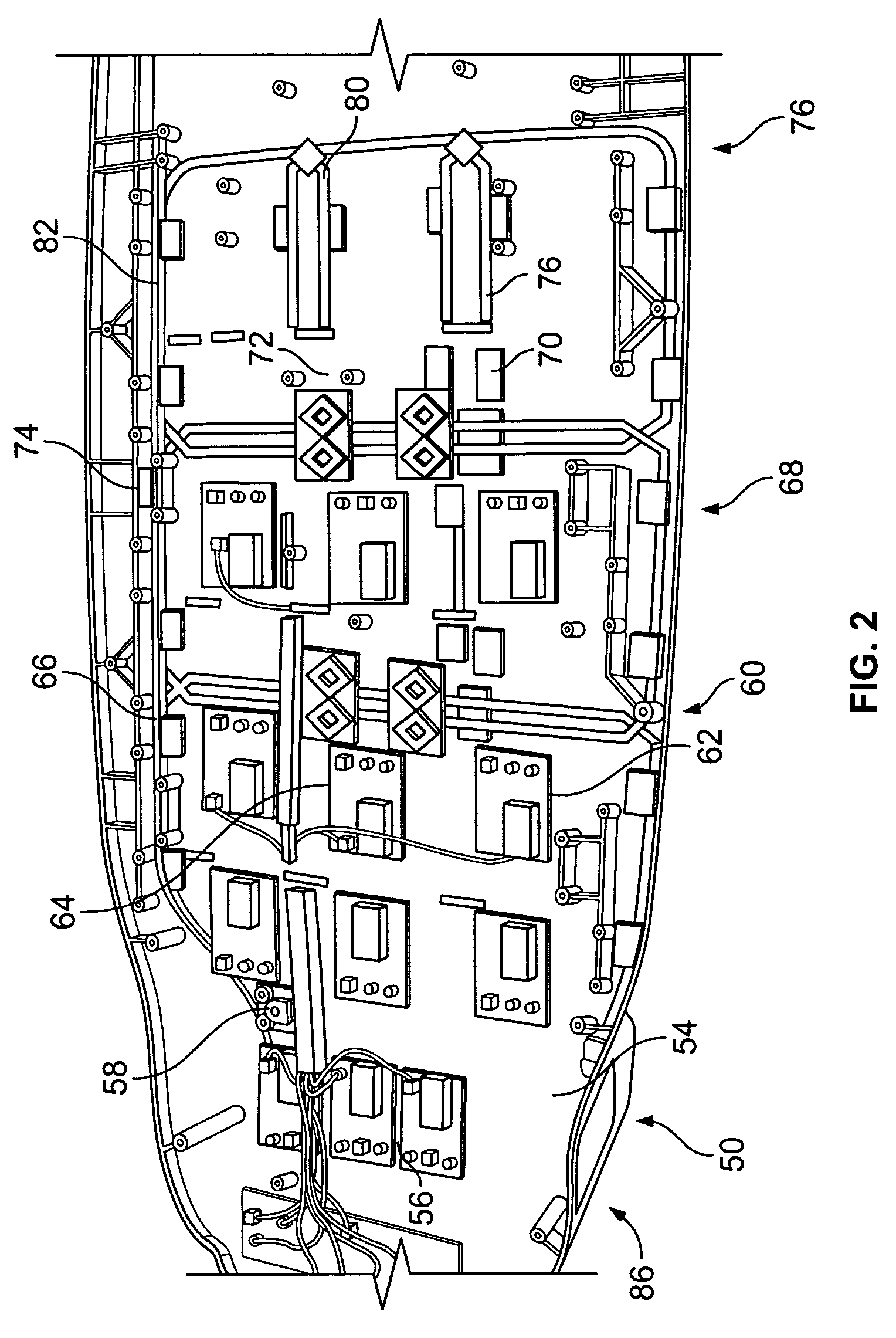Cervical-thoracic-lumbar spine phased array coil for Magnetic Resonance Imaging
a phased array coil and cervical spine technology, applied in the field of medical imaging systems, can solve the problems of coil not providing the best snr in the spine region, the structure is not suitable for spine imaging, and the axial and coronal imaging has a shading problem
- Summary
- Abstract
- Description
- Claims
- Application Information
AI Technical Summary
Benefits of technology
Problems solved by technology
Method used
Image
Examples
Embodiment Construction
[0026]Various embodiments of the present invention provide a phased array coil for imaging, for example, the Cervical-Thoracic-Lumbar (CTL) spine of the human body using a Magnetic Resonance Imaging (MRI) system. The various embodiments may be used in a horizontal MRI system with, for example, a 3-Telsa (3 T) main magnetic field strength. However, the various embodiments may be used in MRI systems having a lower or greater main magnetic field strength. Due to the human body's dielectric and conductive effect on the high frequency electromagnetic field, an RF coil with a symmetrical structure receives asymmetrical signals from the body. This causes, for example, spine images made by a traditional CTL coil, which has a symmetrical quadrature pair structure, to have left-right (LR) shading. Various embodiments of the invention provide a three-loop coil structure to provide a wide uniform sensitivity area with a high SNR in the LR direction to cover the spine and nearby tissue regardles...
PUM
 Login to View More
Login to View More Abstract
Description
Claims
Application Information
 Login to View More
Login to View More - R&D
- Intellectual Property
- Life Sciences
- Materials
- Tech Scout
- Unparalleled Data Quality
- Higher Quality Content
- 60% Fewer Hallucinations
Browse by: Latest US Patents, China's latest patents, Technical Efficacy Thesaurus, Application Domain, Technology Topic, Popular Technical Reports.
© 2025 PatSnap. All rights reserved.Legal|Privacy policy|Modern Slavery Act Transparency Statement|Sitemap|About US| Contact US: help@patsnap.com



